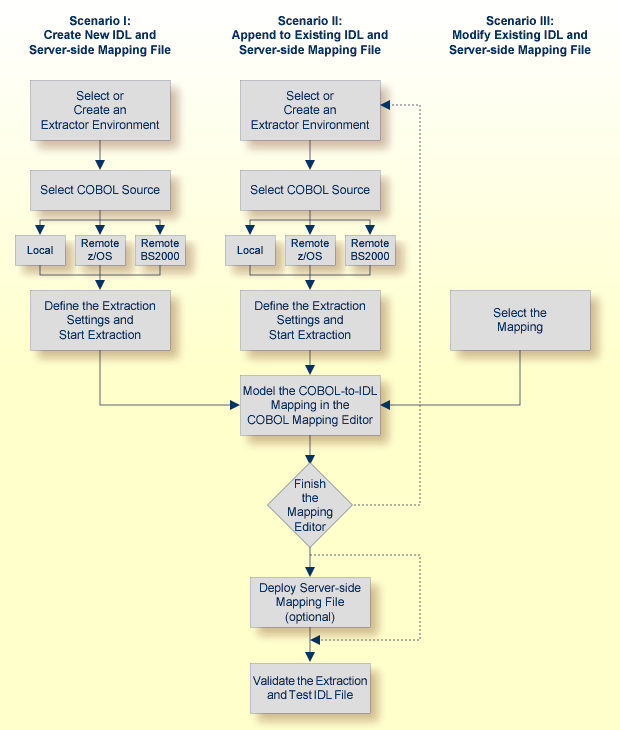This document describes how to extract IDL from a COBOL source, using the IDL Extractor for COBOL, deploy, validate and test the extraction results. IDL extraction is supported by wizards, editors and generators. This document covers the following topics:
The following scenarios are supported and are described in separate sections:
See also COBOL Mapping Editor.

Before you start an extraction, we recommend you first clarify the following issues:
The interface type of your COBOL program, see Supported COBOL Interface Types.
The input and output parameters of your COBOL server. Note the following:
COBOL REDEFINES are used in CICS as well as in batch servers. For all COBOL REDEFINES you have to clarify which redefine paths are the relevant ones for your extraction.
Particularly in CICS, the interface of a COBOL server is in most cases not described by the parameters given in the
PROCEDURE DIVISON header.
See PROCEDURE DIVISION Mapping and DFHCOMMAREA examples under
Programming Techniques.
We recommend you have a basic understanding of your COBOL server, especially if you can simplify your IDL with the following:
Map functions of the COBOL server to IDL programs.
Suppress unneeded fields.
Map COBOL data items to constants.
The COBOL sources can contain
copybook references; see Copybooks under COBOL to IDL Mapping
CA Librarian (-INC) or CA Panvalet (++INCLUDE) control statements
In section COBOL to IDL Mapping you will find information on how the COBOL syntax is mapped to Software AG IDL using this wizard and the Mapping Editor. We recommend you read this document because it describes possibilities and alternatives for handling COBOL syntax constructs.
Make sure the COBOL source
can be compiled with no errors and no warning
is written in COBOL fixed format, consisting of sequence number (column 1-6), indicator area (column7), area A, (column 8-11) and area B (column 12-72) for z/OS, BS2000, z/VSE and IBM i extractions